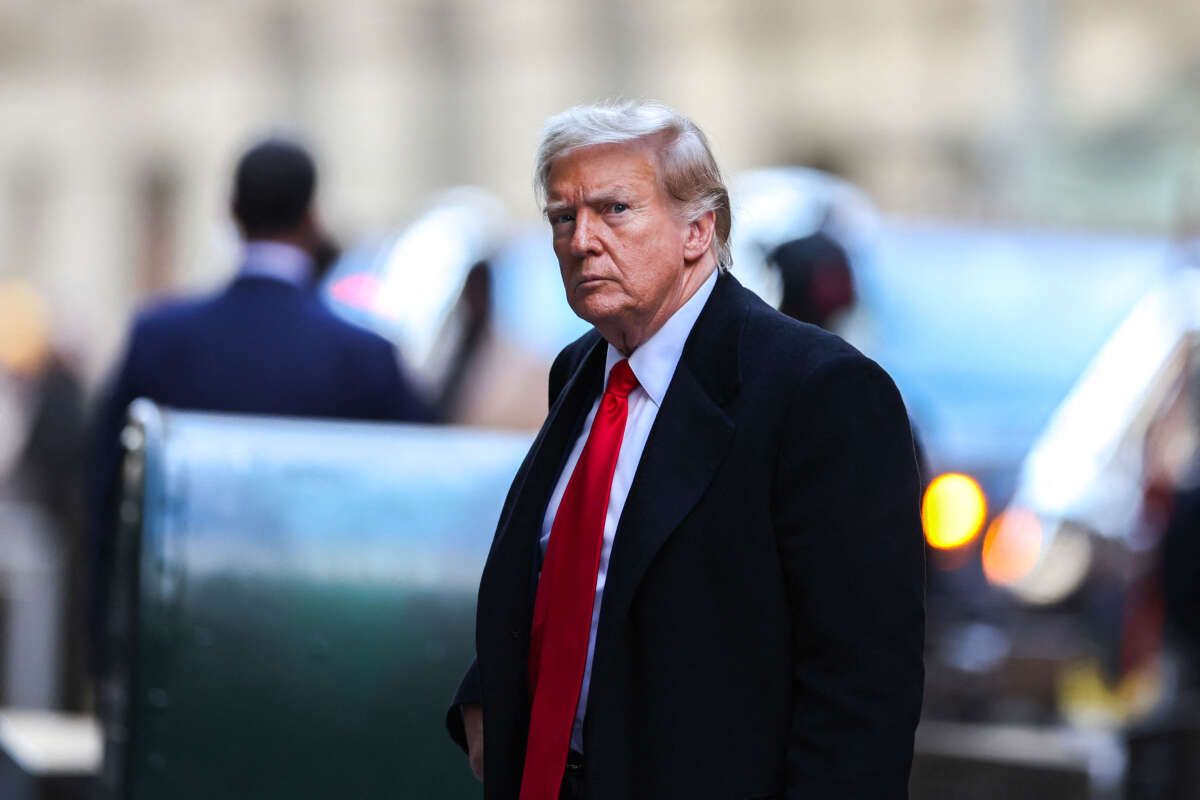Truthout is an indispensable resource for activists, movement leaders and workers everywhere. Please make this work possible with a quick donation.
A Fulton County Superior Court judge on Thursday rejected a request by former U.S. President Donald Trump and most of his co-defendants to have their charges for interfering in Georgia’s 2020 election dismissed on First Amendment grounds.
As Judge Scott McAfee explained, Trump and 14 other defendants in the Racketeer Influenced and Corrupt Organizations (RICO) Act case “argue this prosecution violates the First Amendment’s protections of political speech and activity, freedom of association, and the right to petition Congress as-applied to their alleged conduct, and further contend that the indicted charges are overbroad.”
“After interpreting the indictment’s language liberally in favor of the state as required at this pretrial stage,” McAfee wrote in his 14-page order, “the court finds that the defendants’ expressions and speech are alleged to have been made in furtherance of criminal activity and constitute false statements knowingly and willfully made in matters within a government agency’s jurisdiction which threaten to deceive and harm the government.”
“Even core political speech addressing matters of public concern is not impenetrable from prosecution if allegedly used to further criminal activity,” he continued. “And independently lawful acts involving speech within the meaning of the First Amendment may nonetheless suffice to support a RICO conspiracy prosecution.”
In other words, as University of Alabama law professor and MSNBC legal analyst Joyce Vance put it, “speech isn’t protected when it’s in furtherance of a crime, like saying ‘stick ’em up’ during a bank robbery.”
ha! i just said that exact analogy on air during @mitchellreports! https://t.co/pHKkIaZamJ
— Andrew Weissmann (weissmann11 on Threads)🌻 (@AWeissmann_) April 4, 2024
The Hill noted that the judge’s Thursday ruling “leaves open the possibility that Trump could still raise a First Amendment defense down the road once the factual record is more developed.”
Steve Sadow, the twice-impeached former president’s lawyer, said in a statement that Trump and the other defendants “respectfully disagree with Judge McAfee’s order and will continue to evaluate their options regarding First Amendment challenges.”
“It is significant that the court’s ruling made clear that defendants were not foreclosed from again raising their ‘as-applied challenges at the appropriate time after the establishment of a factual record,'” the attorney added.
The Georgia election case has been held up recently by complications related to Democratic Fulton County District Attorney Fani Willis’ love life, though McAfee ruled last month that she can continue to serve as the prosecutor. A trial date has not yet been set.
Trump is fighting three other criminal cases while campaigning as the presumptive Republican nominee to face Democratic President Joe Biden in the November election. There is also a New York state case stemming from hush-money payments during the 2016 election cycle as well as a pair of federal cases: one related to 2020 election interference and another that has to do with his mishandling of classified material.
In addition to 91 felony charges across the criminal cases, Trump is facing multimillion-dollar penalties in New York for “repeated and persistent fraud” related to his business and defaming E. Jean Carroll regarding rape allegations she made against him.
A terrifying moment. We appeal for your support.
In the last weeks, we have witnessed an authoritarian assault on communities in Minnesota and across the nation.
The need for truthful, grassroots reporting is urgent at this cataclysmic historical moment. Yet, Trump-aligned billionaires and other allies have taken over many legacy media outlets — the culmination of a decades-long campaign to place control of the narrative into the hands of the political right.
We refuse to let Trump’s blatant propaganda machine go unchecked. Untethered to corporate ownership or advertisers, Truthout remains fearless in our reporting and our determination to use journalism as a tool for justice.
But we need your help just to fund our basic expenses. Over 80 percent of Truthout’s funding comes from small individual donations from our community of readers, and over a third of our total budget is supported by recurring monthly donors.
Truthout has launched a fundraiser to add 500 new monthly donors in the next 9 days. Whether you can make a small monthly donation or a larger one-time gift, Truthout only works with your support.
